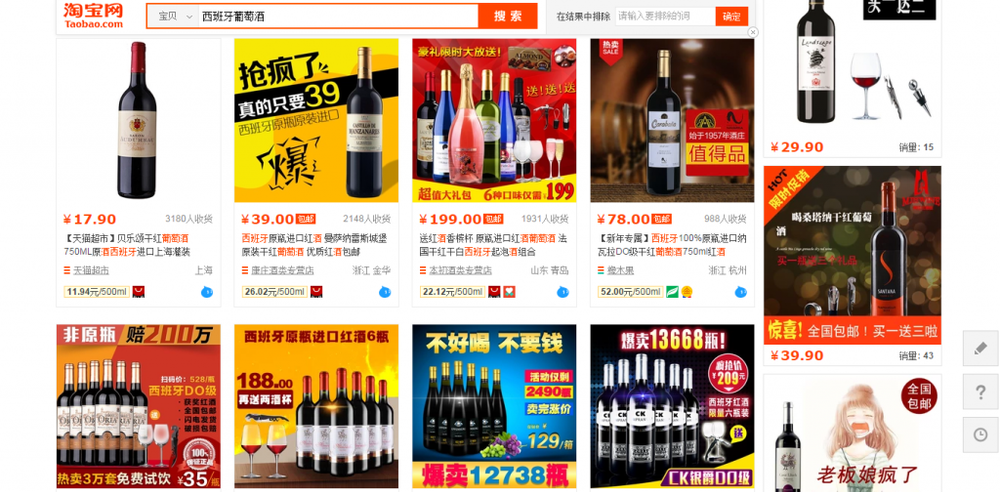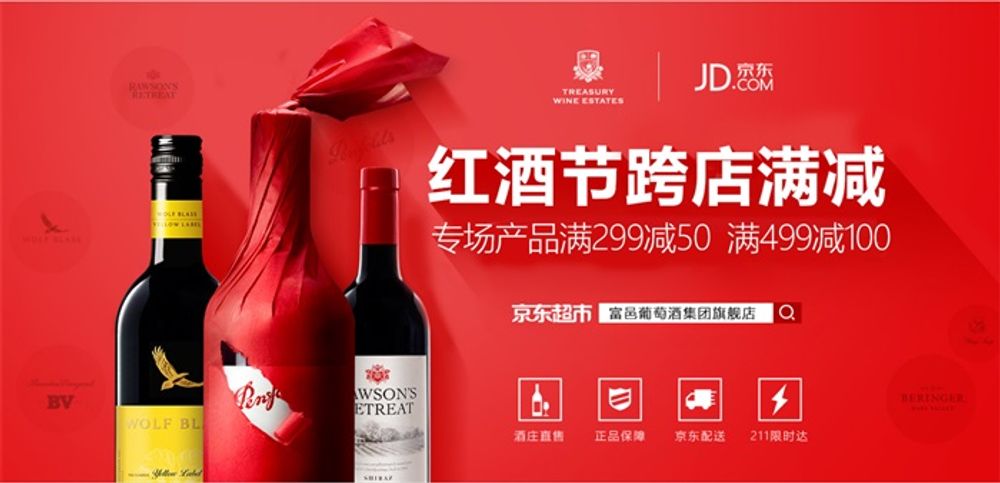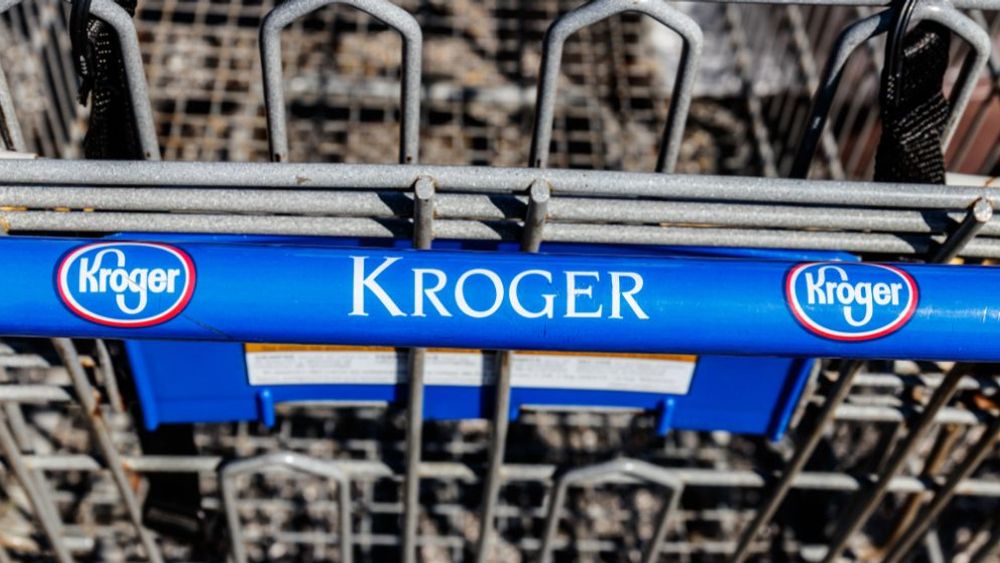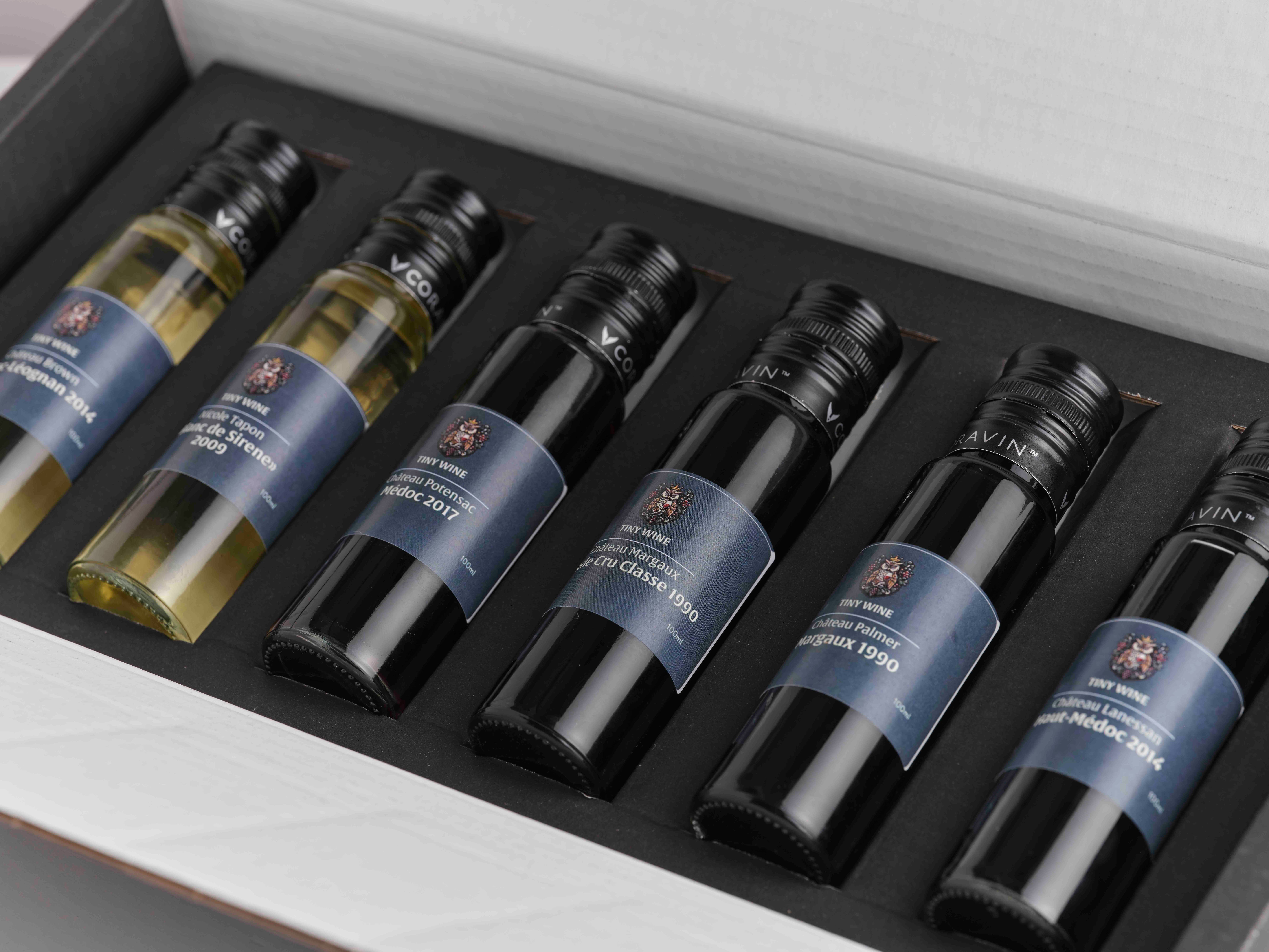Producers might be used to a courier turning up to pick up wines to send to different parts of the world, but up to now China has been a hard market to crack. Not any more thanks to the impact the major online players are having that are even willing to come to your winery to get the wines to sell.
For so many wine producers around the world China is the gift sitting under the Christmas tree that you are not allowed to open. So close, so enticing and yet also frustratingly out of touch. No matter how much you want to do business there the rules of entry are just so complicated that you find yourself sitting on the outside looking in, wondering how do you crack into its system.
It’s not that China does not want your wine. Imported wine exports have enjoyed double digit growth in recent years and there is plenty of demand from a growing, younger middle class that are less interested in just having the big “names” in wine for show and gifting, but are happy to drink your average Chilean Merlot or Australian Shiraz on a Tuesday night.
If only it was that easy getting your wines to them.
Ask a typical wine producer that is exporting wine to China and the story is the same. Yes, they are exporting more and more wine to different parts of China, but no, they do not know who is actually selling it or drinking it.
Then there is the counterfeiting issue with all the major imported producers having to take measures to try and protect their brands. With varying degrees of success.
But help is on its way that claims to potentially eliminate all these problems in one swoop. The rise of the all powerful Chinese online giants that can give even the mite of Amazon a run for its money.

The online wine market is the biggest in the world at 10% of all sales
Boom in online
Online retailing is booming in China as the national distribution and take up of smartphones to most corners of this vast country means what was a hugely disparate and diverse consumer base can be brought together thanks to the power of China’s major e-commerce players.
So much so that online sales in rural areas grew by 39% in 2017, helping the overall market increase by 32% on 2016 and taking total online revenues over $1 trillion for the first time, according to China’s Ministry of Commerce. This follows a 30% increase in sales in 2016.
It means China is by far the biggest online retail market in the world, dwarfing the US in second place in both sales and growth, which online analysts estimate was worth $455 billion, growing at 15% a year.
China certainly leads the world when it comes to online wines sales, which now account for 10% of the market thanks primarily to the scale and influence of its online retail giants, Alibaba and JD.com, according to Deloitte China’s Luxury E-Commerce White Paper 2017.
Not only do they control the online market, they also offer a complete end to end supply chain solution for frustrated international exporters scratching their heads wondering how they can get their products past Chinese ports.
Simply strike a deal with an Alibaba and it will take guarantee your wine gets to the customer that has ordered it. At least on paper.
It’s why so many of the world’s major drinks and wine companies are now queuing up to do business with the Chinese online players. Be it Constellation Brands, Treasury Wine Estates, Accolade Wines, Torres, Mouton Cadet, they all want a slice of the booming Chinese online market and are taking out exclusive platforms on the major players sites.
Even more so with the news that WeChat, China’s most popular social media platform with more than 800m daily users, has now opened its e-commerce platform for European companies to sell goods in China.
Shipping direct

JD.com is going the extra mile literally by taking wines from overseas producers and delivering them to customers
JD.com is looking to make the supply chain even more complete by going out to vineyards around the world and shipping producers’ wines direct to their customers in China.
“The business model we use [allows us to] fly directly to the vineyards for wine tastings and they don’t have to worry about the customs declaration or international shipping,” says Max Cao, general manager of global procurement, JD Worldwide. “By utilising JD.com’s comprehensive international supply chain system, we can ship the wine from the vineyard to our customers directly.”
It also has its own in-house team of buyers who buy wine directly from 15 countries including France, Australia, Spain and the US. Last year, it offered around 8,000 brands and sold 40 million bottles of wine.
It is these initiatives that is helping to take wine out to the masses, and away from just the big cities. Rural shoppers now account for 17%, or $199bn, of all Chinese online sales.
China’s Ministry of Commerce claims there is close to 10m individual online merchants operating across China, up 20.7% on 2017, thanks largely to the online marketplaces again hosted by the likes of Alibaba and its Taobao shopping portal.
Which in turn has driven the online distribution network across China which the Ministry estimates now employs some 28m people, helping to build warehouse, distribution centres and handle the end to end deliveries.
International retail opportunity

Global China’s online giants are also opening up China to ambitious global retailers looking to spread their wings without having to place one brick on the ground.
This week, for example, Kroger, the major US grocery chain has struck a deal with Alibaba for it to stock, sell and distribute a number of private label health lines including its hugely successful Simple Truth brand that has generated $2bn sales in the US, through Alibaba’s Tmall Global site .
This deal alone has enormous ramifications for how international retailers might be able to work in the future. It’s no secret that in mature markets such as the UK, Germany and France own label is now arguably more important to the likes of Tesco, Metro and Carrefour than offering more space to a Gallo, Yellow Tail or Jacob’s Creek.
The UK’s Top 20 and 50 best selling wines are made up of retailer exclusive brands that far out sell their branded competition.
So rather than go through all the trials, tribulations, costs and risks of setting up your own retail stores in China, the online solution offers a much cheaper, direct route to potentially millions of Chinese consumers all over the country.
Wal-Mart, for example, has gone a bigger step forward than Kroger and actually owns a 12% stake in JD.com Inc and has struck a similar deal in India with the Flipkart Group earlier in the year.
Alibaba has also got partnerships with Costco and Starbucks to sell its products on its e-commerce platforms.
Work in partnership with an online player and you can also get access to invaluable consumer data about their shopping behaviour, likes, dislikes and what styles of wine work at which price point and customer segment. Without having to employ a single on the ground field analyst.
For those looking to bat higher up the price scale then China is also a huge potential market for luxury goods and therefore premium and luxury wines. Over 65% of what you might call Chinese luxury consumers have bought their products online, with higher percentage for those aged under 35, says Thibault Villet, founder of one of China’s largest online luxury retailers Mei.com.
All of which might now eventually open the door for so many more global wine producers to make selling in China a reality.
- This is an adapted article that first appeared on VINEX, the global trading site for bottled and bulk wines.










































